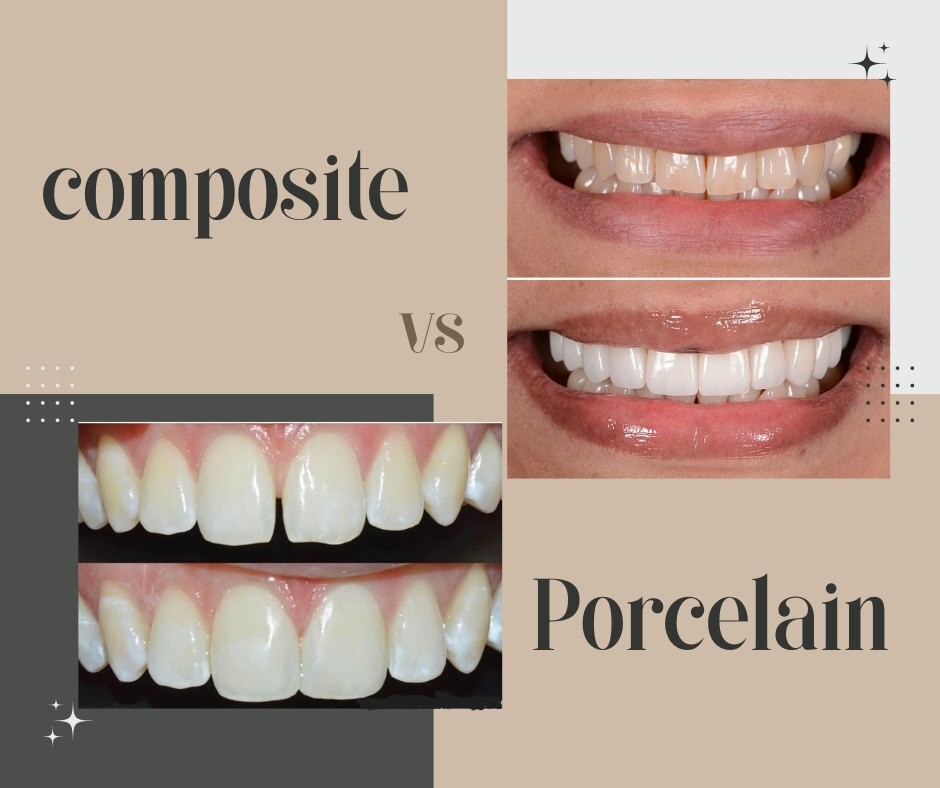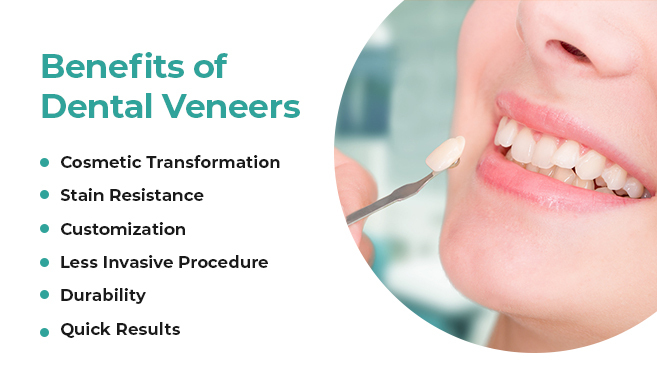Dental veneers are thin, custom-made shells that are designed to cover the front surface of teeth to improve their appearance. They are typically made from porcelain or composite resin and are bonded to the teeth to correct various cosmetic issues. Here's a breakdown of what you need to know about dental veneers:
Types of Dental Veneers:
Porcelain Veneers:
These are durable, stain-resistant, and mimic the natural look of teeth very well.
Porcelain veneers are more resistant to discoloration than composite veneers.
They usually require more preparation and may involve removing a small amount of tooth enamel.
Composite Resin Veneers:
These are made from a tooth-colored resin material and are applied directly to the teeth.
Composite veneers require less preparation and can sometimes be completed in a single visit.
They are more affordable but may stain over time and be less durable than porcelain.

Benefits of Dental Veneers:
Improved Aesthetics: Veneers can correct teeth that are discolored, chipped, broken, misaligned, or have gaps.
Durability: Porcelain veneers are long-lasting and can last many years with proper care.
Stain Resistance: Porcelain veneers resist stains better than natural teeth.
Quick Results: Veneers can provide immediate cosmetic improvements without the need for long, invasive treatments.

Procedure for Getting Veneers:
Consultation: The dentist will examine your teeth, take X-rays, and discuss your aesthetic goals to determine if veneers are right for you.
Tooth Preparation: For porcelain veneers, a small amount of enamel is removed from the front surface of the tooth to make room for the veneer. For composite veneers, less enamel removal is typically required.
Impressions and Customization: After preparing the teeth, the dentist will take impressions of your teeth, which are sent to a lab to create custom veneers.
Fitting and Bonding: Once the veneers are ready, they are bonded to your teeth using a special adhesive. The dentist will check for proper fit and appearance before finalizing the placement.
Considerations:
Cost: Veneers can be expensive, particularly porcelain ones. The cost varies depending on location, dentist, and material.
Irreversibility: Because some enamel is often removed, the process is usually irreversible.
Potential Sensitivity: After getting veneers, some people experience tooth sensitivity, especially to hot or cold temperatures.
Maintenance: While veneers are durable, they can chip or break if you bite hard objects, so careful maintenance is important.
Ideal Candidates for Veneers:
Veneers are typically recommended for people who have:
Discolored teeth that don't respond to whitening.
Chipped or worn teeth.
Gaps between teeth.
Slightly crooked teeth that don’t need orthodontic treatment.
If you are considering veneers, it’s important to consult with a dentist who specializes in cosmetic dentistry to ensure that they are the right solution for your needs.



